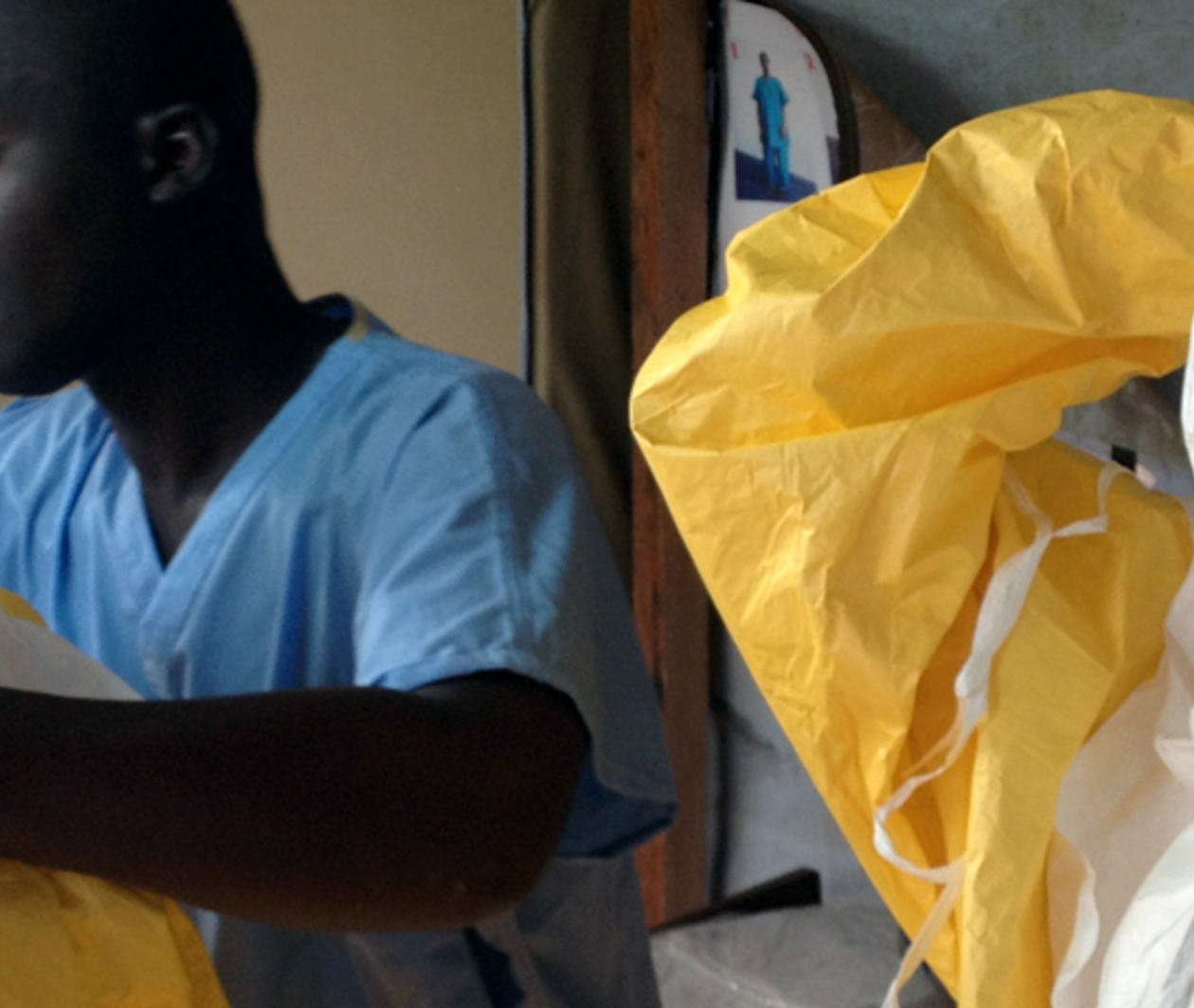
Duration
2 weeksWeekly study
3 hours
Ebola: Symptoms, History and Origins
Other courses you might like
This course isn't running right now. We can email you when it starts again, or check out these other courses you might like.
Browse more in Healthcare & Medicine and Science, Engineering & Maths
In December 2013, the largest outbreak of Ebola virus disease (EVD) that the world has ever seen, began in West Africa - a region of the continent that has historically been free of it.
The World Health Organization (WHO) has designated this situation as a Public Health Emergency of International Concern (PHEIC), and the outbreak has been covered extensively in the global media.
Go behind the headlines on Ebola
In this free online course, we’ll learn more about the virus that causes Ebola and the symptoms of the disease. We’ll also be tracing the current outbreak from its early cases to the most recent infections.
Over two weeks, we’ll consider what can be done to stop the spread of the virus and how we can treat those infected, in terms of general care, drugs and vaccines.
We’ll also learn about the genetic structure of the virus, looking at some of its proteins; where it came from and where it may reside between outbreaks; and its evolutionary history.
Learn through practical sessions and discussions
There will be practical sessions, using free software to do your own analysis on the virus, as well as discussions with guest academics: Thomas Keegan of Lancaster Medical School on aspects of epidemiology; and James Fraser of Lancaster Environment Centre on anthropology relevant to the outbreak.
You’ll have the opportunity to test the knowledge you acquire about Ebola with quizzes at the end of each week.
Dr Derek Gatherer has written about 2014’s Ebola outbreak on the FutureLearn blog, explaining where it came from and what it’s taught us.
Photo by ©EC/ECHO.
Learning on this course
On every step of the course you can meet other learners, share your ideas and join in with active discussions in the comments.
Who is the course for?
This course is designed for those who want to understand the background to Ebola. You might have a general interest in science or medicine, or be planning to study (or currently studying) these subjects at university.
If you’re a healthcare professional and want to look at the science behind Ebola in more depth, join the London School of Hygiene and Tropical Medicine’s course: Ebola in Context: Understanding Transmission, Response and Control.
Who will you learn with?
Lecturer in the Division of Biomedical and Life Sciences, Faculty of Health and Medicine, Lancaster University, UK.
Twitter: @viroscape
http://www.lancaster.ac.uk/fhm/about-us/people/derek-gatherer
Learning on FutureLearn
Your learning, your rules
- Courses are split into weeks, activities, and steps to help you keep track of your learning
- Learn through a mix of bite-sized videos, long- and short-form articles, audio, and practical activities
- Stay motivated by using the Progress page to keep track of your step completion and assessment scores
Join a global classroom
- Experience the power of social learning, and get inspired by an international network of learners
- Share ideas with your peers and course educators on every step of the course
- Join the conversation by reading, @ing, liking, bookmarking, and replying to comments from others
Map your progress
- As you work through the course, use notifications and the Progress page to guide your learning
- Whenever you’re ready, mark each step as complete, you’re in control
Want to know more about learning on FutureLearn? Using FutureLearn
Do you know someone who'd love this course? Tell them about it...
You can use the hashtag #FLebolaBasics to talk about this course on social media.
